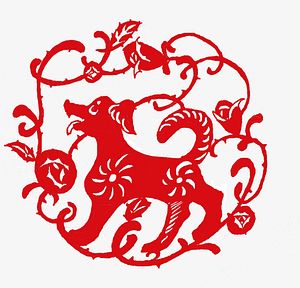Asia has seen mixed fortunes in 2018, amid an escalating U.S.-China trade war, rocky financial markets and softening global economy. In the spirit of the festive season, here is a look at some of the winners and losers in what has been a dog year for many.
The Year of Living Dangerously Prize: Xi Jinping
China’s Xi Jinping cemented his rule by having the two-term limit scrapped, ostensibly becoming “president for life” in the communist-ruled nation of almost 1.4 billion people. But life for an autocrat is never easy and Xi now faces push back on a number of fronts.
At home, the world’s second-biggest economy is noticeably slowing and Xi will come under pressure to inject more stimulus, at the risk of ramping up already high debt levels. While a ceasefire in the trade war has bought time, any escalation threatens to further slow China’s exports amid weakening global growth.
Overseas, China’s “Belt and Road Initiative” has run into opposition in Asia and the Pacific, with critics raising concerns over its debt sustainability and transparency. For Xi, ruling for life looks a lot harder than it might have first appeared.
Marathon Man Award: Shinzo Abe
Shinzo Abe is on track to become the longest serving prime minister in Japanese history after securing an historic third term in September’s party poll.
Having ruled since December 2012, the Liberal Democratic Party leader likely will be in power through 2021, giving him more time to cement “Abenomics” and also achieve his long-held ambition of constitutional reform.
Yet challenges lie ahead in 2019 that could threaten Abe’s plans. Failure to maintain the ruling coalition’s “supermajority” at the upper house elections could doom any prospect of achieving constitutional reform, while a slowing economy faces the impact of a consumption tax hike due in October. With the past three such hikes all resulting in recessions, Abe’s administration will need more than its fair share of good luck.
Hands Full Award: Narendra Modi
India’s reformist leader Narendra Modi has a fight on his hands to stay in power, with his ruling Bharatiya Janata Party recently losing three key state polls ahead of general elections due next spring.
A clash with the central bank boss, Urjit Patel, that resulted in Patel’s resignation damaged investor confidence in Modi’s economic credentials, amid warnings that undermining central bank independence could be “catastrophic.”
With farmers protesting against the government, the opposition Congress party has seized the opportunity and could mount a tougher challenge in 2019. Modi also faces an external balancing act that would challenge any leader, with neighbors including rivals China and Pakistan, as he attempts to extend India’s influence in the region.
Nevertheless, despite a growth slowdown, India is still seen outperforming other major economies with projected GDP growth of 7.3 percent next year, according to the OECD. And with India expected to replace China as home to the world’s largest labor force by 2025, the future remains bright, should Modi successfully navigate his domestic difficulties.
The Falling Short Award: Moon Jae-in
South Korean President Moon Jae-in cannot be criticized for a lack of ambition. But after promising to curtail the power of South Korea’s chaebol conglomerates and redistribute income while achieving détente with North Korea, reality has bitten hard in 2018.
With his approval rating plummeting, Moon has unveiled a new economic plan that is less about bolstering incomes and more about improving competitiveness, including boosting the chaebol. Yet with rising household debt, a stagnating economy and external threats, Moon’s administration is facing a struggle to reverse course to revitalize “J-nomics.”
Externally, the chaebol have been enlisted to support Moon’s peace moves toward the North, with Moon facing criticism from Washington that he is offering economic concessions prior to denuclearization being achieved.
Moon has also chilled relations with Japan by effectively scraping a 2015 ‘comfort women’ agreement. A recent incident where a South Korean destroyer locked its fire-control radar onto a Japanese plane has not helped relations, either.
The Shooting Yourself in the Foot Award: Australia’s government
Australia appears headed for its sixth leadership change in a decade, thanks to bloodletting in the ruling Liberal coalition government that toppled another sitting prime minister.
With the next federal election due by May 2019, Prime Minister Scott Morrison’s coalition government badly trails opposition Labor, with polls pointing to a landslide victory for Bill Shorten’s center-left Labor party.
“Disunity is death,” former Prime Minister Malcolm Turnbull warned his colleagues in February 2017. Having ousted his former leader Tony Abbott, Turnbull got a dose of his own medicine in August and Australian voters appear far from forgiving.
[Dis]honorable Mentions
Amid a host of other worthy winners, dishonorable mentions must go to:
- Cambodian Prime Minister Hun Sen, for extending his 33-year rule by winning re-election after banning the main opposition party and shutting out all independent media
- Myanmar’s government, for its arrest and imprisonment of two Reuters journalists investigating the killings of Rohingya Muslims and its response to U.N. investigations
- Philippine President Rodrigo Duterte, with the official death toll from his war on drugs now more than 5,000 and rising.
And spare a thought for Asia’s billionaires, who according to Bloomberg lost a collective $137 billion, the first time their wealth has declined since the ranking began in 2012.
However, there were some winners, including Japan’s richest man, Tadashi Yanai, who added some $6 billion to his fortune, along with India’s Mukesh Ambani, who added $4 billion to become Asia’s richest person.
Who will be the winners and losers in 2019, Asia’s Year of the Earth Pig? With the zodiac sign reportedly indicating good fortune, the region will certainly be hoping for plenty of prosperity amid an increasingly cloudy outlook.
In the meantime, season’s greetings and our very best wishes for a happy and prosperous New Year to all Pacific Money readers.

































